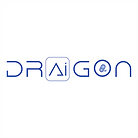Antimicrobial resistance
DRAIGON
at a glance
TARGET
Antimicrobial resistance
TIMELINE
01 January 2024 to 31 December 2027
COORDINATOR
European Vaccine Initiative
FUNDER
European Union
FUNDING
6.34 Mio Euro
SUMMARY
Diagnosing Infections with Multi-Drug Resistant Microorganisms using AI-powered Genomic Antibiotic Susceptibility Prediction from Long-Read Sequencing Data
DRAIGON is a global project aiming to develop a novel diagnostic tool to tackle antimicrobial resistance (AMR) through the integration of genome sequencing and artificial intelligence (AI) technologies for patients infected with multi-drug resistant pathogens.
The consortium proposes to validate and demonstrate the clinical efficacy of a novel diagnostic test focusing on blood and joint infections at five hospitals across the globe (in the Netherlands, Austria, Albania and the United States). This diagnostic test will be easy to implement and may also function as an early detection system to prevent cross-border spread of pathogens. To guide the implementation of the tools developed in DRAIGON, an extensive health technology assessment (HTA) will be performed. This assessment will consider health-economic implications, patient outcomes, and social aspects.
The DRAIGON consortium is convinced that offering innovative genetic analysis of pathogens will improve clinical management for patients with infections, and monitoring of AMR. Thus, DRAIGON will directly enhance patient care and contribute to global AMR surveillance.
PARTNERS
The consortium includes internationally recognised experts in various fields. This includes sequencing platform and assay development, bioinformatics and machine learning, clinical microbiology, infection prevention and control, antimicrobial therapy and stewardship, and health economics.
-Camtech Innovations Limited (United Kingdom)
-European Vaccine Initiative (Germany)
-Health-Ecore B.V. (Netherlands)
-Isala Hospital (Netherlands)
-Johns Hopkins University (United States)
-Ortopadisches Spital Speising Gmbh (Austria)
-Sandoz Pharmaceuticals Ag (Switzerland)
-Spitali Universitar Shefqet Ndroqi (Albania)
-University Medical Center Groningen (Netherlands)

This project has received funding from the European Union’s Horizon Europe research and innovation programme under grant agreement No 101137383.

